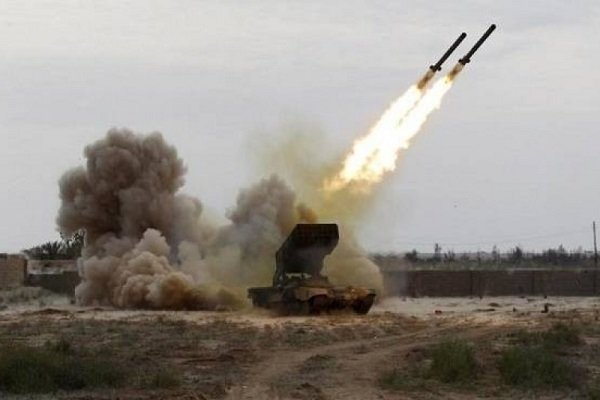Yemeni missile power surprising aggressors

The Rocketry Force of the Yemeni Army and Popular Committees on Friday said that it produced new, domestically-manufactured ballistic missiles that were made by Yemeni experts. It claimed that a new experiment, on a short-range ballistic missile, was done successfully.
A military source said that the missile force of the Yemeni army was targeting foreign aggressors and mercenaries on Yemen’s West Coast, and that the new ballistic missile has specs that will be revealed in coming days.
Advanced missile systems have been important deterrents for Yemen in the defensive war against the Saudi coalition. The “Barkan H2”, for example, is a medium-range ballistic missile has a range of 900-1400 kilometers. This missile can easily destroy targets in Riyadh. Yemeni forces from the province of Saada, which is only 919 kilometers from Riyadh, are able to hit the Saudi capital.
Another missile has also been used to target Saudi airports and military positions. The “Zelzal 3”, six meters long, carries a particularly destructive warhead.
The “Qaher-M2” ballistic missile has a range of 400 km with a 350 kg warhead and is capable of landing within 10 meters of its target.
The “Tochka” is a high-precision ballistic missile system with the shortest range of 120 kilometers, and is one of the most accurate missiles used against the Saudi-led coalition.
Yemen’s missiles have surprised the Saudis and others in the coalition. The fact that Yemen has localized production of its missiles, too, has given the country some leverage against the forces attacking Yemen and may improve Yemen’s bargaining position in any future negotiations.
Saudis and the Emirates and, most notably, the United Nations, have repeatedly called for a moratorium on missile strikes against Saudi Arabia. The possibility if Yemen being able to strike not only Saudi Arabia but the Emirates as well is likely in the near future. The British Foreign Ministry has recently warned the Emirates of Yemen’s growing missile strike capabilities, and has also warned all its nationals in the UAE or those intending to travel to Dubai and Abu Dhabi. Sudan is also concerned about the probability that Yemen with target that country.
Yemen’s government has said that a halt to Yemen’s firing of its missiles is dependent on the cessation of air raids on Yemen by the Saudi coalition.
The Saudis in any event cannot accept the fact that Yemen has such missile capabilities and have claimed that Iran must be behind this deterrent and has been supplying military equipment, including ballistic missiles, to Yemen.
The official spokesperson for Ansarallah, Mohammed Abdel Salam, has said that those who claim Iranian forces and weapons are in Yemen have failed to show any proof.
Sadiq al-Sharrafi, a member of Yemen's Ansarullah also said that there were no Iranian weapons in Yemen. “If we had missiles from Iran, the situation would be different and we could see a mass migration from the cities of Saudi Arabia. There are no terrestrial, naval or airborne weapons from Iran in Yemen. If Iran's weapon support for Yemen really existed, you would see things going in a different direction.”
Iran has repeatedly denied these allegations through its Foreign Ministry spokesman.
Yemen’s missile progress is based solely on self-reliance and on-the-ground capabilities.
